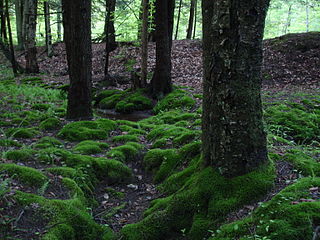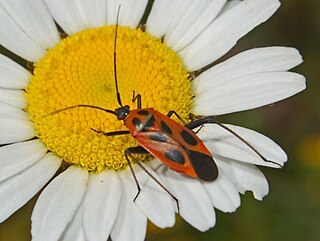
Calocoris nemoralis is a species of true bugs belonging to the family Miridae or jumping tree bugs, subfamily Mirinae.

Horistus orientalis is a species of plant bugs, part of the suborder Heteroptera, which belongs to the family Miridae, subfamily Mirinae.
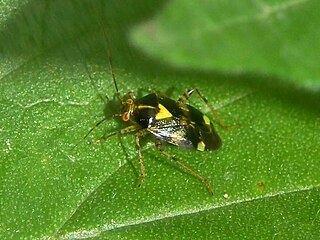
Liocoris tripustulatus or the common nettle bug is a species of plant bugs belonging to the family Miridae, subfamily Mirinae.

Lygus pratensis is a species of plant bugs belonging to the family Miridae.

Macrotylus quadrilineatus is a species of plant bug belonging to the family Miridae, subfamily Phylinae.
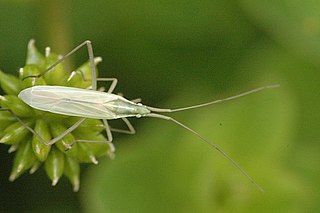
Notostira elongata is a species of bugs from a Miridae family, subfamily Mirinae. It is found everywhere in Europe except for Albania, Andorra, Bosnia and Herzegovina, various islands.

Deraeocoris is a genus of plant bugs in the family Miridae. There are at least 210 described species in Deraeocoris.
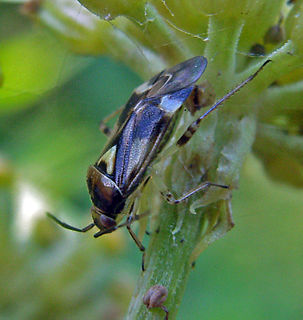
Orthops kalmii is a species of plant bugs belonging to the family Miridae, subfamily Mirinae, that can be found everywhere in Europe but is absent on such islands as Azores, the Canary Islands, Faroe Islands, Iceland and Malta. It is 4.5 millimetres (0.18 in) long.

Orthops basalis is a species of plant bugs belonging to the family Miridae, subfamily Mirinae that can be found everywhere in Europe except for Azores, Bosnia and Herzegovina Faroe Islands, Iceland and Cyprus.
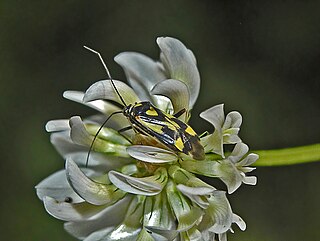
Grypocoris sexguttatus is a species of true bugs belonging to the family Miridae or plant bugs, subfamily Mirinae.

Taylorilygus apicalis or broken-backed bug is a species of plant bug in the family Miridae.

Closterotomus ventralis is a species of plant bugs belonging to the family Miridae, subfamily Mirinae.

Isometopinae is a subfamily of jumping tree bugs in the family Miridae and are the only members of the Miridae to possess ocelli. The subfamily is split into five tribes. There are 42 genera and approximately 239 described species in Isometopinae.

Agnocoris is a genus of plant bugs in the family Miridae. There are about seven described species in Agnocoris.

Ceratocapsus is a genus of plant bugs in the family Miridae. There are at least 130 described species in Ceratocapsus.
Lygus elisus, known generally as the pale legume bug or lucerne plant bug, is a species of plant bug in the family Miridae. It is found in Central America, North America, and Oceania.
Chlamydatus pulicarius is a species of plant bug in the family Miridae. It is found in Europe & Northern Asia and North America.
Agnocoris rubicundus is a species of plant bug in the family Miridae. It is found in Europe & Northern Asia and North America.

Agnocoris pulverulentus is a species of plant bug in the family Miridae. It is found in North America.




